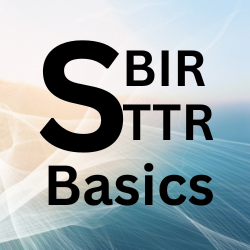Navigating the complexities of federal funding requires a solid foundation in accounting practices—especially regarding SBIR (Small Business Innovation Research) and STTR (Small Business Technology Transfer) awards. A well-organized accounting system is crucial for small businesses to track spending and meet the government’s rigorous compliance standards. These government-backed programs empower small businesses to innovate, research, and develop technology that can change industries. However, while the funding can provide a springboard for growth, its financial oversight can be daunting if not managed correctly.
A critical part of successfully managing an SBIR or STTR award is ensuring your accounting system supports transparency, accuracy, and adherence to the Federal Acquisition Regulation (FAR), accounting standards (GAAP), and specific award terms and conditions.
In this article, we will dive into the SBIR and STTR accounting system requirements, exploring what businesses must have in place to be compliant, the consequences of non-compliance, and best practices for developing a robust accounting system that satisfies both federal requirements and sound business practices.
Understanding the Importance of an Accounting System
The SBIR and STTR programs fund small businesses conducting high-risk research with the potential for commercial success. These grants require firms to maintain an accounting system that ensures they spend federal funds according to the award’s terms and conditions. This system is not just for tracking dollars—it’s for maintaining accountability and transparency in using taxpayer money. An SBIR and STTR funding accounting system must meet specific standards, ensuring the business has proper controls to manage federal funds efficiently. Non-compliance with accounting requirements can result in audit findings, withholding of funds, loss of future eligibility, and other consequences.
Key Accounting System Requirements for SBIR and STTR Awards
The government expects specific standards from a small business’s accounting system to award SBIR or STTR funding. These requirements aim to give the business and the funding agency confidence that the project will use funds responsibly. Below are the main components of a compliant accounting system:
Accurate Cost Tracking and Allocation
Any accounting system’s core is the ability to accurately track and allocate costs to specific projects, tasks, or programs. Every business’s accounting system must be able to track direct costs (such as salaries, equipment, and materials directly tied to the research) and indirect costs (such as overhead, administrative expenses, and facility costs).
Direct costs should be easily identifiable and traced to the specific SBIR or STTR award. These costs may include:
-
- Direct labor (e.g., research personnel)
- Materials and supplies
- Travel expenses for project-related activities
- Equipment purchased or used for the project.
The business must allocate indirect costs (also known as overhead) using a reasonable method that reflects the proportion of time, effort, or resources dedicated to the project. These costs might include administrative support, rent, utilities, and general office supplies.
The Uniform Guidance (2 CFR 200) governs federal grants and provides clear rules for tracking and allocating costs. The accounting system must distinguish between direct and indirect costs, ensuring all projects receive the correct amounts.
Timekeeping and Labor Charges
A reliable accounting system must be able to track labor costs associated with each award. Employees working on SBIR and STTR projects must accurately document their time in a manner that reflects the actual time spent working on research-related activities.
Adequate and accurate timekeeping systems are crucial to ensure that direct labor charges are both allowable and justifiable. Timekeeping systems should:
- Use timesheets or electronic time-tracking systems to capture labor costs
- Charge time to specific project activities and provide adequate documentation to support those charges.
- Prevent labor costs from being over- or under-billed to the project.
SBIR and STTR awards require businesses to allocate labor based on actual time worked, so accurate timekeeping is necessary.
Segregation of Funds and Budget Tracking
A compliant accounting system must also allow for the segregation of SBIR and STTR funds from other business operations. Robust accounting ensures that federal funds are used solely for the project and helps prevent mixing of government and non-government funds, which could lead to audit discrepancies or financial mismanagement.
Another crucial feature of the accounting system is the ability to track the use of funds against the approved budget and the specific terms and conditions of the award. Tracking includes:
- Regularly comparing actual costs to budgeted amounts
- Identifying variances and resolving them promptly
- Maintaining clear, auditable records for each project or award
By having an effective budget tracking system, businesses can avoid underspending and overspending while ensuring compliance with the specific funding guidelines of the SBIR or STTR program.
Accounting System Audit Trails and Documentation
A key component of an adequate accounting system is the creation of audit trails. An audit trail refers to the detailed records documenting every transaction and action taken concerning the award. Documentation requirements include:
- Invoices and receipts
- Payment records
- Internal approvals and authorizations
- Timesheet records
- Vendor contracts and agreements
- Employment agreements
A clear, accessible audit trail ensures the business can provide documentation during a government audit. The audit trail supports transactional accountability and all expenses charged to the award. Federal auditors typically look for:
- Provide evidence that the business used funds according to the award terms.
- Properly authorize expenditures.
- Segregate SBIR and STTR funds from other business activities.
This documentation is not just a best practice; it’s a requirement to ensure compliance with government regulations and to avoid penalties, including the disallowance of costs.
Cost Principles and Allowable Costs
SBIR and STTR awardees must adhere to federal cost principles outlined in the Uniform Guidance (2 CFR 200). These principles define which costs are allowable, unallowable, and allocable to the award.
Some examples of allowable costs include:
- Salaries and wages directly associated with the R&D work
- Equipment and materials used specifically for the research project
- Travel expenses incurred for project-related activities
Unallowable costs might include:
- Entertainment or personal expenses
- Fines or penalties
- Alcoholic beverages
Businesses must understand these cost principles when designing their accounting systems to ensure they fully comply with federal regulations.
Consequences of Non-Compliance
Failure to meet SBIR and STTR accounting system requirements can have serious repercussions, including:
- Disallowed costs: Financial audits and the potential for disallowed costs could require businesses to repay funds to the government.
- Suspension or debarment: The government can prevent businesses from receiving future funding.
- Loss of credibility with funding agencies, making it difficult to win future SBIR or STTR awards.
In some cases, incorrect cost allocation, failure to segregate funds properly, or inaccurate timekeeping may result in an auditor finding non-compliance during the periodic reviews conducted by agencies like the Department of Defense, the Department of Energy, or the National Institutes of Health.
Best Practices for Ensuring Compliance
To ensure that your accounting system meets SBIR and STTR requirements, small businesses should:
- Consult with a CPA or financial advisor experienced in government contracts to establish sound accounting practices.
- Implement reliable timekeeping and cost allocation procedures from the outset of the project.
- Keep detailed and organized records of all expenditures, timesheets, and invoices.
- Periodically review the system for compliance with government regulations.
- Establish a cost control mechanism to ensure funds are used efficiently and within the approved budget.
Conclusion: Building a Strong Foundation for Success
An effective accounting system is not just a regulatory requirement for SBIR and STTR awards—it is a critical tool that ensures transparency, accuracy, and financial integrity in managing government funds. By following best practices, understanding compliance requirements, and implementing an organized system of tracking costs, small businesses can focus on what matters most: innovative research and technology development.
Building a robust accounting system will ensure compliance and set the stage for continued success in the competitive world of federal research funding.
References:
- U.S. Small Business Administration (SBA). (2021). SBIR/STTR Policies and Guidelines. Retrieved from https://sbir.gov
- U.S. Government Accountability Office (GAO). (2020). Federal Grant and Contract Management. Retrieved from https://www.gao.gov
- 2 CFR 200 – Uniform Administrative Requirements, Cost Principles, and Audit Requirements for Federal Awards. (2020). U.S. Government Printing Office.

